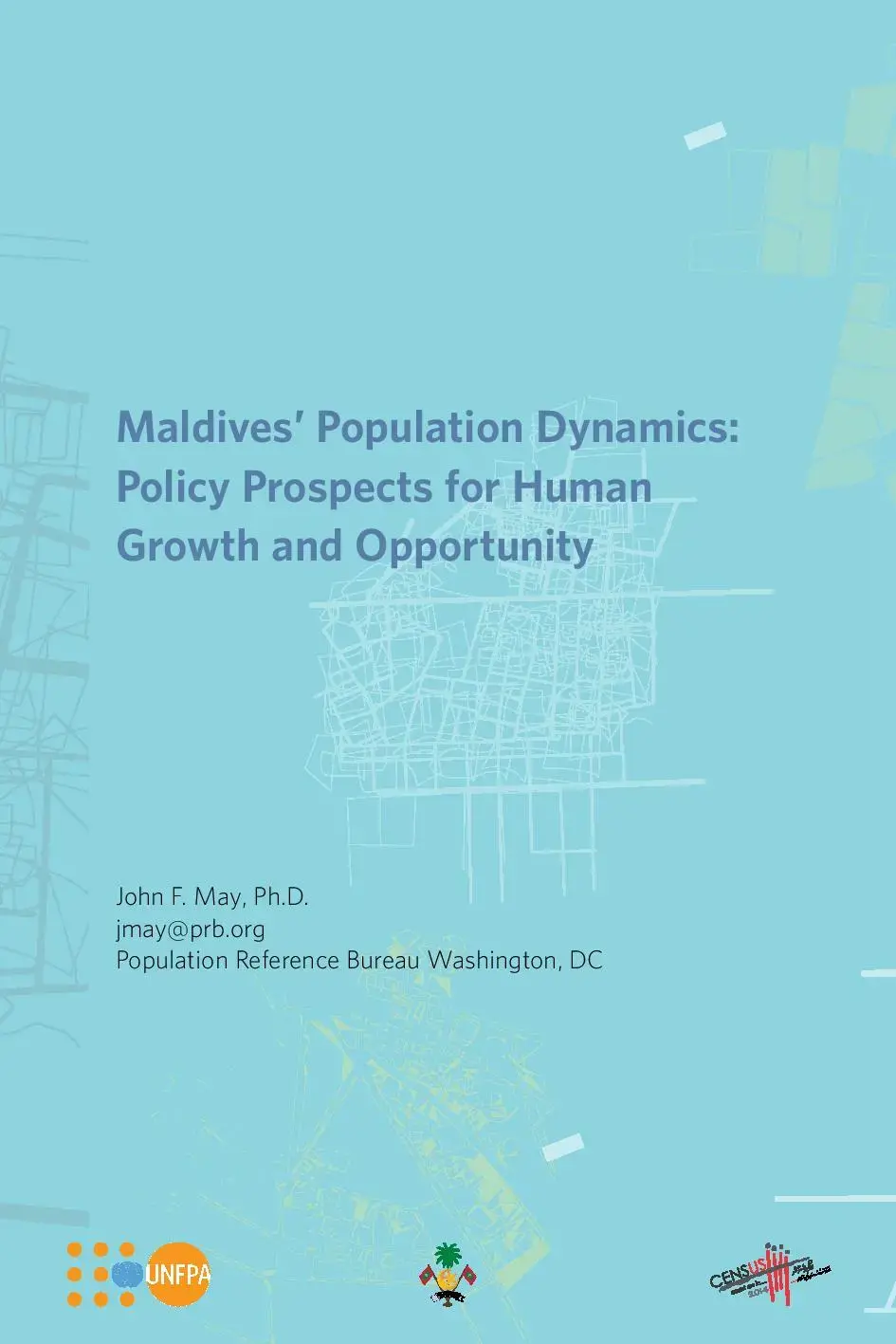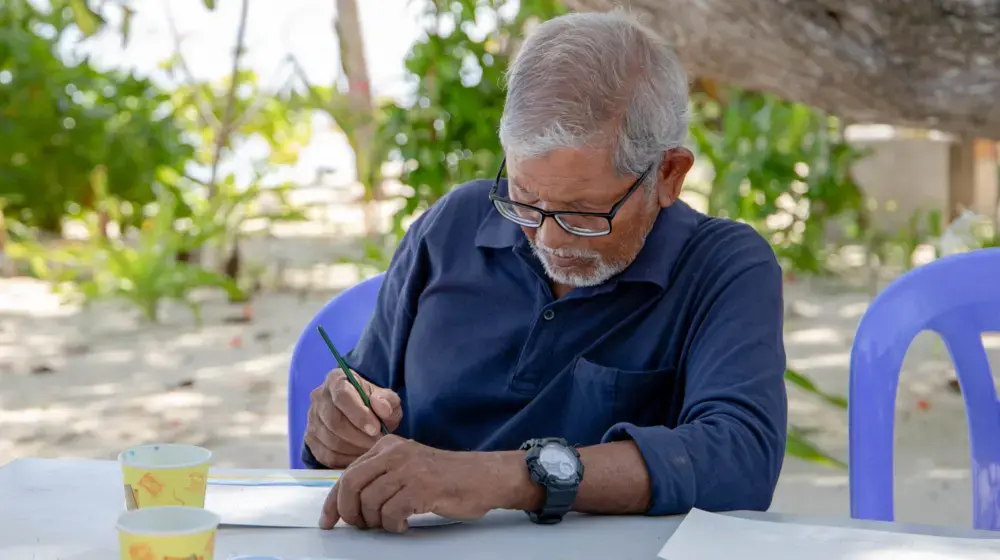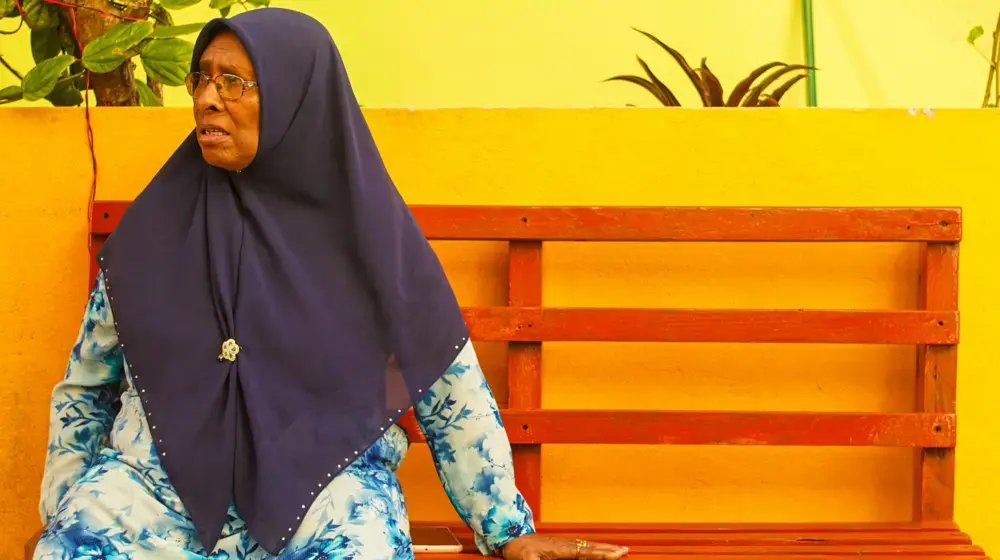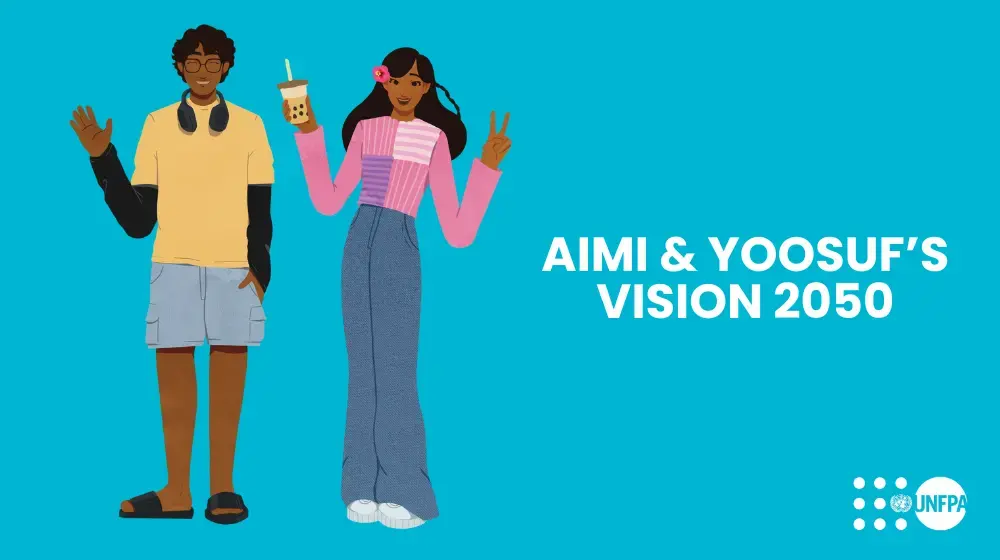The report presents Maldives’ economic and demographic background, with a focus on the recent economic growth and the demographic transition.
The paper turns to the results of the 2014 Population and Housing Census, before reviewing Maldives’ population and social policies, in particular the views of the Government of Maldives on population policies, the 2004 Population Policy of the Maldives, and the other reproductive health and social policies that have been adopted since by the Government. The paper also review the Maldives Election Manifestos as well as several Presidential speeches.
Thereafter, the paper reviews the three main population and development challenges that Maldives will need to address, namely the youth’s human capital, reproductive health outcomes, and gender equality, the capturing of a potential first demographic dividend, and the issue of internal and international migrations. The paper also attempts to assess the linkages and the cross-cutting issues between these three thematic areas, including the mitigation of the effects of climate change, as well as the synergies that can be reaped among these development priorities.
Finally, the paper examines how to launch a new conversation on population and development policies in Maldives and discusses four steps to strengthen these policies. In order to achieve this goal, it is suggested to bring population issues within the country’s overall development strategies, to strengthen the institutional settings to address population issues, to expand population and development research, and to enhance general advocacy on population and development issues among the Maldivian leadership and the general public.




